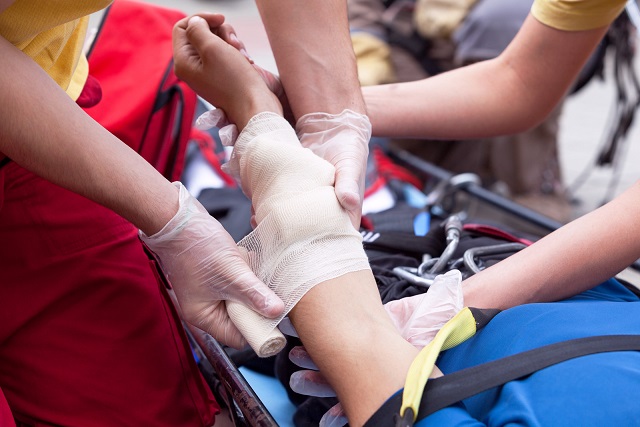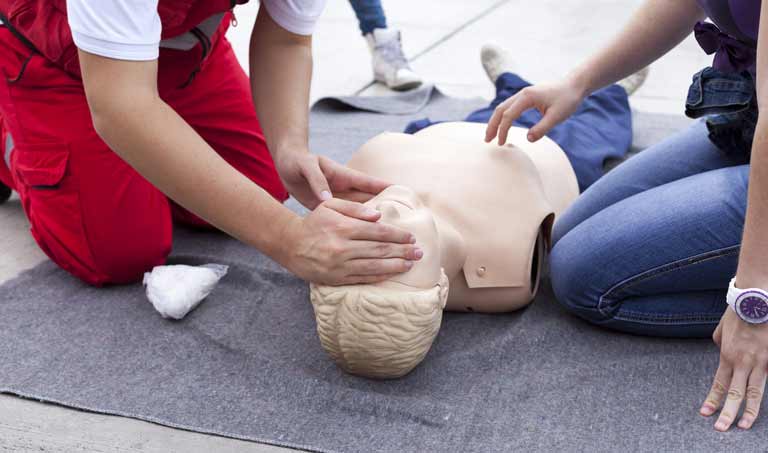Introduction
In today's fast-paced globe, the importance of being gotten ready for emergencies can not be overemphasized. Whether you are a moms and dad, teacher, or a specialist in the medical care industry, obtaining the abilities to aid in clinical emergencies is crucial. This is where first aid courses come into play, particularly those that focus on CPR (Cardiopulmonary Resuscitation) strategies. While specific training provides its own qualities, team training in first aid and mouth-to-mouth resuscitation programs provides an one-of-a-kind set of benefits that boost understanding and retention.
This article discovers The Advantages of Team Training in First Aid and CPR Courses, highlighting why this method can be much more effective than solo discovering. From hands-on method to joint learning settings, we will certainly explore different aspects of team training and just how it can improve your experience while obtaining your first aid certificate
What Is Group Training in First Aid and CPR?
Group training describes educational sessions carried out with multiple participants who discover together under the support of a qualified teacher. In the context of emergency treatment and CPR training courses, this layout enables participants to involve with each various other while mastering essential lifesaving skills.
How Does Group Educating Work?
In team sessions, participants usually undertake a mix of theoretical understanding and functional exercises. The Visit this site trainer covers key principles such as:
- Basics of very first aid Techniques for doing CPR Use of automated external defibrillators (AEDs) Protocols for responding to emergencies
Participants engage with role-playing circumstances, simulations, and hands-on method. This interactive environment cultivates far better understanding and retention.
Types of Group Training Available
Group training can take several types:

- Workplace Training: Companies usually organize emergency treatment training courses for their employees. Community Workshops: Neighborhood organizations regularly organize community classes. Educational Institutions: Colleges might include emergency treatment training as component of their curriculum.
Each setting has its distinct advantages that deal with details needs.
The Benefits of Group Training in Emergency Treatment and Mouth-to-mouth Resuscitation Courses
1. Boosted Learning Opportunities
Group settings normally assist in conversations that enhance understanding. Participants can share experiences or ask concerns they could think twice to voice in individual sessions.
Why is Peer Communication Important?
Peer interaction motivates diverse perspectives on handling emergencies. For instance, when going over numerous sorts of injuries or clinical dilemmas, various individuals may have encountered one-of-a-kind circumstances that supply valuable insights.
2. Realistic Method Scenarios
One significant advantage of group training is the possibility for realistic method scenarios. Individuals can exercise on each various other using manikins or role-play emergency situation situations.
How Does This Improve Skills?
Practicing in real-time aids strengthen methods like upper body compressions or rescue breaths with muscular tissue memory. The more comfortable individuals really feel carrying out these actions, the much better prepared they will be throughout an actual emergency.
3. Building Self-confidence Via Collaboration
When people train together, they cultivate a feeling of friendship that can build self-confidence degrees significantly.
What is the Connection In Between Synergy and Confidence?
Working as part of a team enables learners to support each other psychologically. If someone fights with a specific ability-- like applying bandages-- others can step in to supply help or encouragement.
Psychological Advantages of Group Training
4. Reduced Anxiousness Levels
Anxiety about carrying out first aid or mouth-to-mouth resuscitation correctly can hinder performance throughout real-life situations.
How Can Group Settings Alleviate This Fear?
In a supportive team setting, individuals are much less most likely to really feel separated with their worries; shared experiences frequently normalize sensations of anxiousness. Additionally, practicing along with peers allows them to witness others making errors without judgment.
5. Motivation With Shared Goals
Group dynamics often promote inspiration from shared goals.
What Drives this Motivation?
When everybody aims toward gaining their first aid certifications with each other, individuals are urged to push themselves even more than they may alone. This collective ambition gas dedication among peers.
Cost-Effectiveness of Group Training Sessions
6. Cost Effective Solutions for Organizations
For organizations seeking to train workers in first aid and CPR techniques, team sessions often prove more economical than one-on-one instruction.
Why is Bulk Prices Beneficial?
Many training carriers use discount rates for bigger teams participating in the exact same program simultaneously-- making it financially sensible for firms focusing on extensive safety measures without breaking the bank.
Social Perks: Networking Opportunities
7. Producing Connections Among Participants
Training together constructs partnerships past just discovering lifesaving skills; it additionally cultivates networking chances among community participants or coworkers alike.
How Can These Links Be Valuable?
Networking within a team produces avenues for collaboration later-- whether it's establishing office safety protocols or developing regional emergency response groups after finishing their first aid courses.
Accessing Different Understanding Styles
8. Satisfying Various Knowing Preferences
People discover in a different way; some absorb info finest with visual help while others take advantage of hands-on methods or auditory directions from instructors.
Can Team Setups Tailor Knowing Experiences?
In team setups led by experienced fitness instructors furnished with diverse training techniques-- including videos demonstrating mouth-to-mouth resuscitation strategies-- individuals have numerous sources readily available simultaneously catering especially towards their favored styles!

FAQs concerning Team Training in First Aid and CPR Courses
1. What certifications must my instructor have?
Your instructor need to possess relevant accreditations from recognized companies such as the American Heart Organization (AHA) or Red Cross together with considerable mentor experience!
2. Exists an age demand for participating?
Most programs accept participants aged 12 years old and over; nevertheless, it's recommended constantly inspect ahead of time since various organizations may have particular limitations based upon age groups!
3. How long does it typically require to complete these courses?
Depending upon the type selected-- a fundamental program may last around 4-- 6 hours while sophisticated ones could extend up-to 2 days!

4. Will I get an accreditation upon completion?
Absolutely! Many credible organizations supply certifications confirming conclusion when you have actually effectively passed any type of required analyses analyzed by your trainer!
5. Can I participate if I have no prior experience?
Yes! Many individuals sign up with no background knowledge since fitness instructors break down concepts into manageable components provided in the direction of beginners!
6. Are there refresher courses offered after obtaining certified?
Definitely! Many organizations urge people re-certify every 2 years because standards progress consistently ensuring you remain updated with existing practices!
Conclusion
The advantages derived from taking part in team training for first aid and mouth-to-mouth resuscitation training courses are tremendous-- from improved discovering opportunities via peer interactions down to emotional assistance fostering confidence among students alike! Not only does this joint strategy make obtaining critical lifesaving abilities delightful yet additionally guarantees all involved leave sensation well-prepared need to real-life emergencies occur down-the-line!
If you're contemplating whether group-based education suits your needs best when seeking an extensive understanding pertaining to taking care of urgent care scenarios efficiently then look no further-- the proof speaks volumes! So prepare today by enrolling on your own into one such program near you; come to be an empowered private qualified enough not simply conserve lives however also influence others around you too!